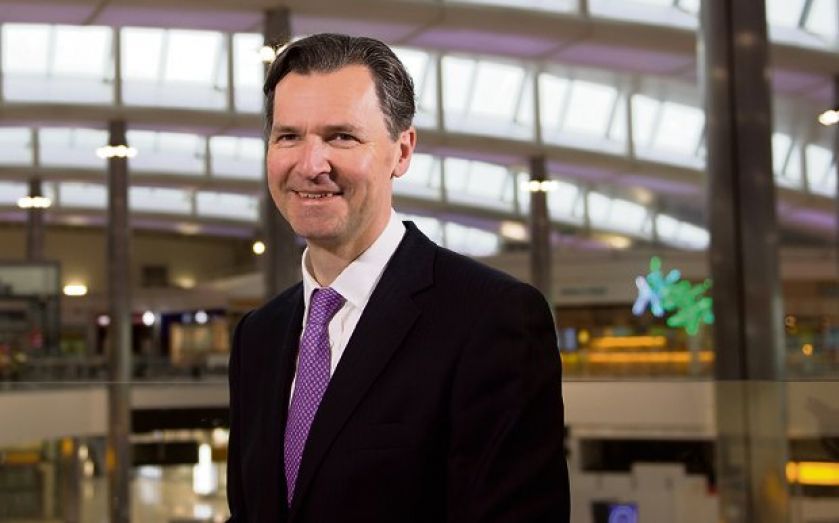Heathrow boss John Holland-Kaye wants the City to speak up for airport expansion

For most of us, airports are a necessary headache a couple of times a year. For others, they are the root of all evil. Which is probably why the debate over airport expansion has rumbled on for so long and become one of the most divisive in modern British politics.
Somehow along the way, the world’s busiest international airport, Heathrow, quietly hit full capacity. Now, politicians, planners and airport bosses are racing to catch up. In an economic climate where growth is the pot of gold and exports the rainbow that transports us there, politicians appear to have forgotten that we need planes to do much of the exporting. Even when plans for expansion are agreed upon, it will take 10 years for the UK to see any benefit, by which time the country will have been losing out to rival airports on the continent for decades.
Given the context then, you might expect the man in charge of the campaign to win a new runway at Heathrow to be battle-weary, yet John Holland-Kaye, who took the top job in July, is anything but. The former strategy consultant, who has worked as both commercial director and development director for Heathrow, is an enthusiastic cheerleader for the airport (“I love the sense of possibility you get, that you take a plane from this gate to north Africa and the next gate will take you to Singapore”). He is also measured in his analysis of Gatwick (arguing that the business case doesn’t stack up) and gracious in his assessment of political involvement so far. This last point despite Liberal Democrat members recently voting against any UK airport expansion.
“The choice has come down to two different ways in which Britain can operate in the future, given that Heathrow is full,” he explains. “This is a debate about the kind of country we want to have – do we want to be connected to the global economy or are we going to focus on European connections?”
It is a question that has troubled successive governments, foxed even the biggest airlines (British Airways tried to expand at Gatwick twice and failed) and remains unresolved. Not to mention residents under the flightpath and climate change campaigners who want to block the plans. Yet Holland-Kaye has hope. He is encouraged by the open nature of the Davies commission on the future of the UK’s airports and by meetings with politicians, who he says recognise the decision can not be ducked.
“Either we expand Heathrow or we are going to have to accept as a country that to get to those emerging markets we will have to go through somebody else’s country,” he says. This is not an option that will appeal to chancellor George Osborne or Prime Minister David Cameron, who are both keen for the UK to stand firmly on its own two feet. “It isn’t in our national interest to do that,” Holland-Kaye adds, “over time we will lose out to the French and the Germans, who have taken the opportunity that could have been ours.”
Heathrow is operating at 98 per cent capacity and has had to force some airlines wishing to add routes into London to wait over seven years. “We do 20 times more trade if we have a direct flight than if we have an indirect flight with those countries,” Holland-Kaye says, explaining that without expansion the UK will continue to miss out on inward investment, particularly from China, which will go instead to our neighbours on the continent.
“We have 40 flights a week from Heathrow to mainland China, the Netherlands have the same, and we both have the same level of tourism and investment. So basically the Dutch, a country the third of the size of us, is doing just as well as we are in China,” he says, raising his eyebrows.
“We have to fight for our role in the world. We need to see more business people come out and support us to make sure that when politicians are making those decisions they know they’ve got the support of the country behind them. We need to stand up and be counted on this,” he says. Without business backing, Holland-Kaye says, that fight will be much harder to win.